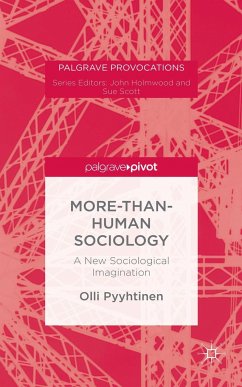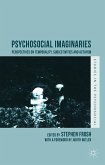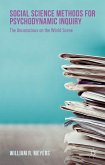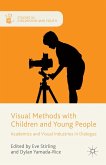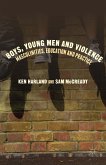More-than-Human Sociology is a call for a bolder, more creative sociology. Olli Pyyhtinen argues that to make sociology responsive to life in the 21st century we need a new sociological imagination, one that addresses connectivity, understands the world in which we live as both a human and non-human world, and is sensitive to the multiple scales on which things exist. A fresh and innovative take on the promise of sociology, this book will appeal to scholars and students both within sociology and the social sciences more broadly.
"Olli Pyyhtinen's stunningly original book dares us to think against the grain of the professional pathologies of sociology including its fixation on static substances and the micro/macro split by thinking with the dynamic relationships and heterogeneous collectives that make up our experience of social life on multiple scales. Drawing creatively from both classical and contemporary theorists and elaborating on a variety of readily accessible examples, this manifesto fulfills its promise to bring the imagination to bear on the most urgent tasks of social science." - Thomas Kemple, University of British Columbia, Canada

